Research Area: Climate Change & Sustainable Agriculture

Promoting Agricultural Diversification and Climate Resiliency in India
This special policy brief estimates the potential reduction in methane gas emissions from the diversification of agriculture in Chhattisgarh, India. The analysis provides policymakers with information regarding pathways for combatting climate change by reducing agricultural emissions, making Chhattisgarh’s agricultural system more resilient to the effects...
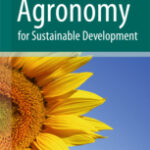
Transitions to Crop Residue Burning Have Multiple Antecedents in Eastern India
Abstract Far removed from the agricultural fire “hotspots” of Northwestern India, rice residue burning is on the rise in Eastern India with implications for regional air quality and agricultural sustainability. The underlying drivers contributing to the increase in burning have been linked to the adoption...

Essays in Agriculture Economics, Climate Change, and Nutrition
Abstract The dissertation consists of three essays in the field of agriculture economics, climate change, and nutrition. I have structured it as three chapters, namely ‘Fertilization Impact Of Atmospheric Carbon Dioxide On Agricultural Yield’, ‘Are Production And Consumption Decisions Independent? Identifying Separability In Indian Agriculture’,...
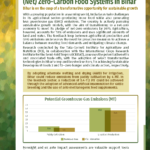
Pathways for Achieving Zero-Hunger, (Net) Zero-Carbon Food Systems in Bihar
This special policy brief provides estimates of the potential reduction in greenhouse gas (GHG) emissions that could be achieved in Bihar by adopting three transformational technologies in the state’s agricultural sector: alternate wetting and drying, advanced artificial insemination, and anti-methanogenic feed supplements. This analysis provides...

Hunger and Environmental Goals for Asia: Synergies and Trade-offs Among the SDGs
Abstract Rapid progress in hunger reduction in Asia has come at the cost of environmental degradation, while pursuing environmental conservation goals risk slowing further progress on hunger. Operationalizing the Sustainable Development Goals (SDGs) shows us the complexity of achieving multiple societal goals simultaneously. The lack of coordination across...

Whitman Barrett
Whitman Barrett received his MS in soil and crop sciences in 2024. His work focused on the reuse of human excreta in agriculture, with the goal of improving smallholder farmers’ productivity and resilience to climate change. He is passionate about…
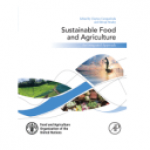
Policies for Sustainable Food Systems
Abstract Over the past 50 years, agricultural growth has contributed to jumpstarting overall economic growth and poverty reduction in many countries, but the progress has not been uniform and has often been accompanied by significant environmental costs. To adequately and sustainably feed the ever-growing population,...
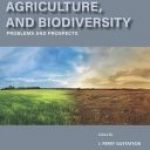
Climate Change and Food Security
Abstract This timely collection of 15 original essays written by expert scientists the world over addresses the relationships between human population growth, the need to increase food supplies to feed the world population, and the chances for avoiding the extinction of a major proportion of...
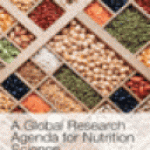
Toward an Integrated Approach to Nutritional Quality, Environmental Sustainability, and Economic Viability: Research and Measurement Gaps
Abstract Nutrition is affected by numerous environmental and societal causes. This paper starts with a simple framework based on three domains: nutritional quality, economic viability, and environmental sustainability, and calls for an integrated approach in research to simultaneously account for all three. It highlights limitations...
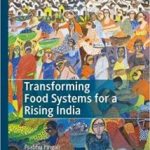
Transforming Food Systems for a Rising India
The Indian growth story is a paradoxical one. Despite economic progress over the past two decades, regional inequality, food insecurity, and malnutrition problems persist. Simultaneously, recent trends in obesity along with micro-nutrient deficiency portend to a future public health crisis. This book explores various challenges...

